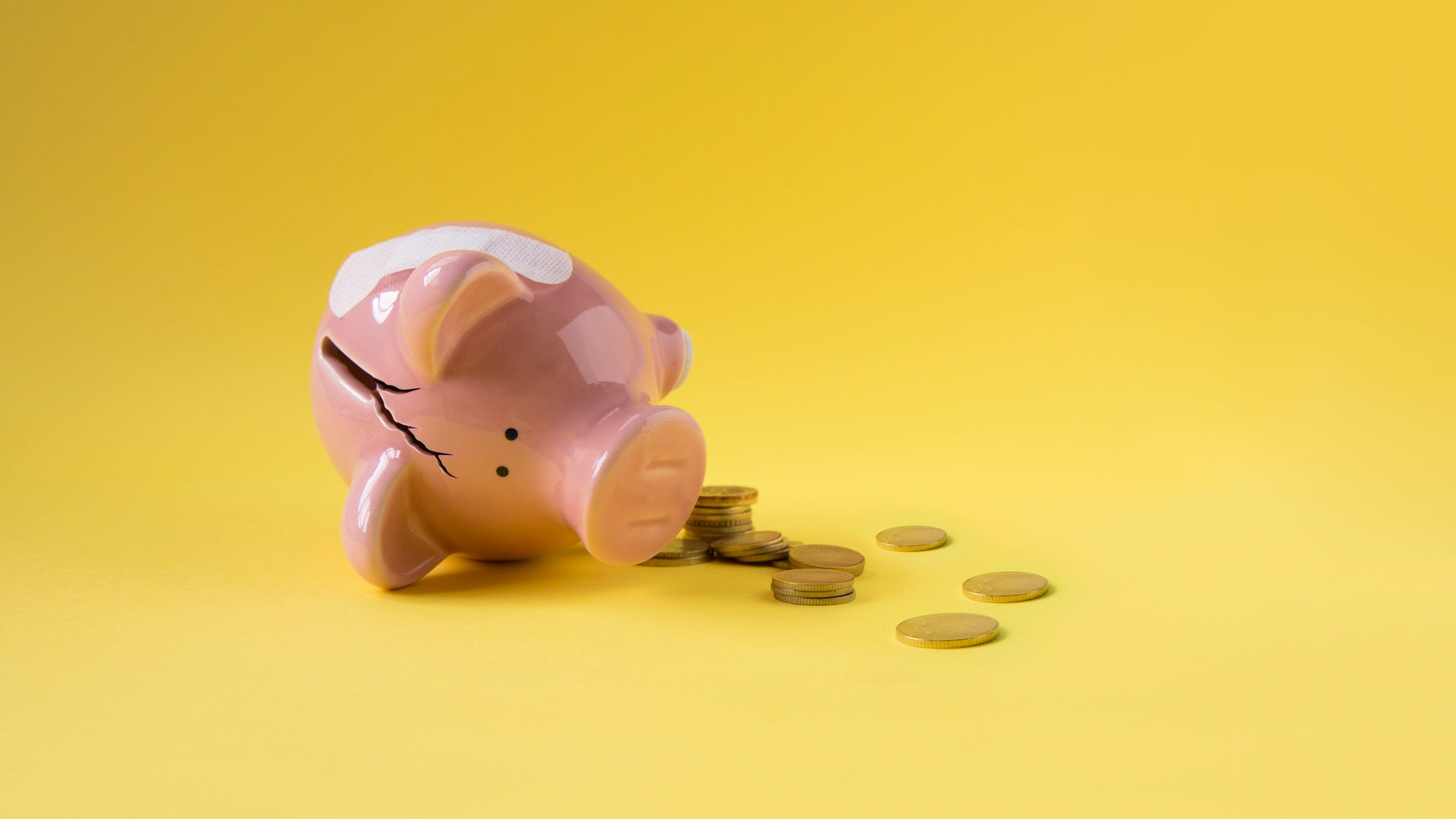If you've ever made a financial decision that's ended up feeling like a money mistake, forgiving yourself for the choices you've made and leaving them in the past can be a tall order. Whether you once forgot to cancel a membership that cost you hundreds, or you've ended up relying too heavily on a costly credit card in the past, it's easy to reflect on historic financial decisions and beat yourself up about the ways you could have spent money differently, or how things might look if you were 'good with money'.
Too often, we believe that negative thoughts and feelings about money will all disappear when we have more or 'enough' money. The truth is that money mindset is completely separate from the number in your bank account and even with a healthy bank balance, you can still feel uneasy about money unless you face up to your money mindset. How you think about and behave with money affects your everyday life, from managing finances within a relationship to negotiating your pay at work.
Negative beliefs about money can shape our decision making and the actions we take, which ultimately knock on to our financial situations. Past mistakes can provide opportunities to learn too, so instead of living in the past, focus on what you can control and find a way to put money mistakes behind you so that you can change your long-term financial outlook. If you are ready to move the needle on your relationship with money, however, there are steps you can take to start shaping a more positive approach towards money.
Focus on facts not beliefs
For anyone who isn't a numbers whizz, it's not uncommon to think that your financial situation is purely a result of being 'bad with money'. Many people criticise their own ability to make financial decisions, yet we don't often pause to look at the problems that these negative messages can cause. Each one of us has our own set of beliefs and the more often we tell ourselves something, the stronger our belief becomes that it is true.
Keep in mind that being bad with money is simply a belief, rather than a fact - and financial literacy is a skill that can be learnt. No one wakes up one day able to play the piano to concert standard or is born with the ability to play tennis. Skills take time and effort to learn, as well as a lot of practice. It's no different when it comes to money: we can learn how to better manage our money and improve our financial skills, but it doesn’t happen automatically.
Listen to your language
Katie Watkins, money coach and founder of Katie Saves, believes that the language we use can have a huge impact on our thoughts about money. “Pay attention to the language you are using and try to consciously recognise when you are in a negative thought pattern. You can ask yourself, 'Is that really true?' and try to positively reframe the thought.
"For example, if you tell yourself, 'I'll never be able to buy a house', try to change that language from one of limitation to one of empowerment - for example, 'I am working towards being in a better position to buy a house and have made a lot of progress in the way I manage my money'. Using positive language fosters a growth mindset and will help you to escape the pattern of negative thinking."
Change the narrative
Instead of thinking about all of the instances where you've made a financial decision you regret, find examples of choices you've made with money that have had a positive outcome - however big or small they may be - and write them down somewhere to refer back to when you need a reminder.
Look for steps you can take to further improve your knowledge and feel more confident with money, whether that’s listening to a financial podcast or following some educational accounts on social media. Over time the change in emphasis from negative beliefs to positive can alter how you feel about your ability to manage money and ultimately, change your behaviour with money for the better too.
RELATED: Why can't I stop comparing myself to others financially?
Remember that challenging any long-standing habits and beliefs takes time, so allow yourself space to reflect on any thoughts holding you back. Any time you catch yourself in the middle of a negative thought, pause and ask yourself whether the current belief is helping you. If the answer is no, step back and find an alternative perspective that better serves you.
Ellie Austin-Williams is the author of Money Talks, a Lifestyle Guide for financial wellbeing. Find her on Instagram at @thisgirltalksmoney.












